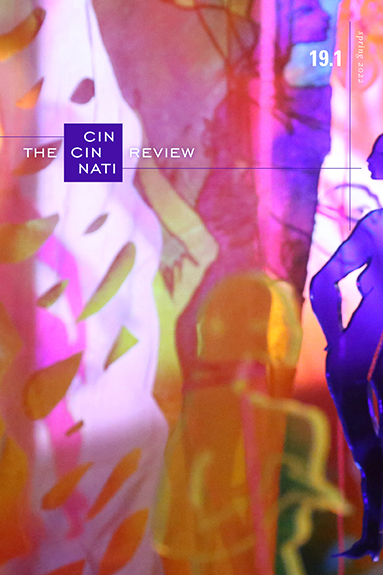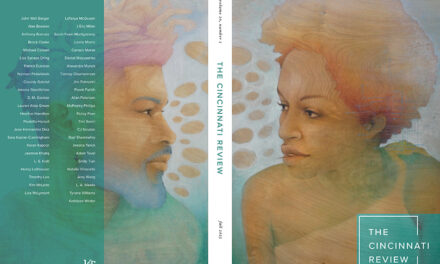Señora Pérez’s house was too small for the four of us to go inside. El Míster and my abuela waited out front. My mom and me sat at the round table in the corner of the kitchen, my mom stabbing the rotary dial with her index finger. Sra. Pérez sat on her sofa watching a telenovela while her two boys made engine sounds, running their Hot Wheels along the concrete floor and over their mother’s knee. I had spent lots of time at this table—at this phone—with my mom. I knew my father mainly by his voice, tinny and crackly through the receiver.
He left for the States when I was three, and I’d only seen him twice since then. The summer after I turned seven, police raided a construction site in South Houston and sent him back to us on a bus. He’d been wanting to come visit anyway, he said. I spent that summer walking the dirt roads to the nearby rancherías with him, helping other men with their harvests. They paid us in bushels of corn, which we ate from and which my dad tried to sell. We ended up with a mound of rotten cobs on the side of the house and a swarm of flies that trickled in through the gaps in the walls and buzzed our ears while we slept. In the late summer he left again. And it was four years of trembling countryside and a quake that sunk part of the town into the old sulfur mine before I saw him again.
Construction stalled around the holidays, he said, so he hopped on a bus from Houston to check up on us. I’d never gotten a Christmas gift before that visit. He brought me a remote-control truck with off-road wheels. When I asked him if the gift was from Santa Claus, he laughed. “¿Are you kidding?” he said. “¿Some fat white guy gets the credit? Nah. Ah.” He wagged his finger. “I worked to make money, and then I went to the store and paid for it, because you’re my son and I want you to have it. Santa Claus doesn’t exist.” I managed to race the car into the collapsed mine a week later by accident, and it was gone. I thought he would be mad, but he just said, “Ni modo,” and that he’d get me a new one.
That visit, my mom tried to make him promise he would send for us soon, showing him that Doña Martina’s old house was halfway inside the cavern spreading from the burnt-down mine, and reminding him that everyone else was looking for a way out. But like most Mexican men who could remember better times at home, he had dreams of coming back and living his old life again: working the fields and raising his chickens. And he got mad, saying that he almost had enough money to come back for good. To prove his commitment to our home, he spent most of his days making repairs around the house: spreading tar over the holes in the tin roof with a metal spatula, mixing concrete into a gash in the kitchen floor that had opened up during the tremor. He even pulled a door off an abandoned house and put it on ours. The door was solid oak with a stained-glass cross encrusted in the upper half—a crack from end to end—and when the sun shone in through the front door, it cast a red shadow into the kitchen. Then after a few weeks, he left to meet a coyote in Nuevo Laredo.
Afterward, my mom got sick—vomiting her huevo perdido in the shrubs outside the window, stomping out of the room when my abuelita lit incense before her prayers, yelling at me for being too loud, for lying so close and being too warm, for scraping my knees playing with my friends in the abandoned mine cars on the tracks. When she called him long-distance on Sra. Pérez’s telephone to say she was pregnant, there was lots of shouting. She called him often after that. Two or three times a week, for weeks, I would hear her hollering from all the way down the street. And when Sra. Pérez gave her the phone bill at the end of the month, she cried. But she got what she was fighting for, cause three months later, she told me to start saying goodbye to my friends at school, and two months after that, el Míster showed up, and here we were.
After a few rings, somebody answered. My mom said in the few lines of English she had, “Juan, please. This Valeria.” The secretary at the lumberyard knew the drill, so my mom hung up.
“We’ll call back in fifteen minutes,” she told me.
She took a seat on the sofa next to Sra. Pérez, watching the clock above the TV more than the telenovela. The little boys were now throwing their miniature cars against the ground, mimicking the sound of explosions. My abuelita sat on a cinder block just outside the house under the patchy shade of a bald cypress. El Míster stood to the side, his hand in his blue-jean pocket. He didn’t look like anybody I’d ever met. He wore a half-open polyester shirt exposing a thick patch of hair, a stand-alone mustache that crept into his mouth when he talked, curly hair down to his shoulders, sideburns, and large sunglasses with dark mirrored lenses like gasoline rainbows.
“It should be fine,” he said. “The lumberyard is closed tomorrow. Better that we get there on his day off.”
“Ay, joven. I hope you’re right,” my grandma said. “My yerno has taken good care of us. But he’s got a hard head.”
“Nah,” said el Míster. “I’ll tell him it’s a good idea.”
“Okay,” my abuela said, shaking her head.
. . .










